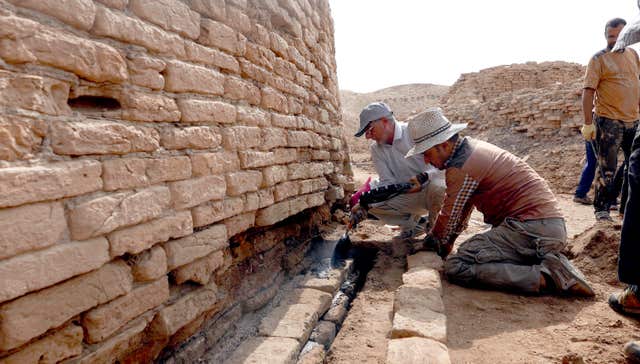
Archaeologists from the British Museum will work with Iraqis to help preserve the world’s oldest known bridge as part of a scheme combating destruction under Islamic State (IS).
Eight female heritage professionals from Iraq will start training at the British Museum this month to help them stabilise and potentially rebuild sites damaged by IS, also known as Daesh, as they come back under Government control.
The Tello bridge, in the south of Iraq, was built in the third millennium BC and rediscovered in 1929.
Team of all-female archaeologists from Mosul to conserve world's oldest (4,000yrs) bridge at Girsu in Iraq. Trained by @britishmuseum pic.twitter.com/8XsXfrlclC
— Nick Higham (@highamnews) April 3, 2018
Tello is the modern Arabic name for the ancient Sumerian city of Girsu, one of the earliest known cities in the world.
Since initial excavations, the 4,000-year-old structure has remained exposed, with no known conservation work to address its long-term stability or issues of erosion, the British Museum said.
The museum, which is working with the Iraq State Board of Antiquities and Heritage, hopes the restored bridge will become a “potent symbol of a nation emerging from decades of war” and future tourist site.

The project is the fourth phase of the Government’s Iraq Emergency Heritage Management Training Scheme, developed in 2015 to combat the destruction of heritage sites in Iraq and Syria under Daesh.
Preliminary work under the scheme revealed the urgency of protecting the bridge and of more ambitious conservation, including emergency excavations.
It has received £2.9 million from the Department for Digital, Culture, Media & Sport (DCMS).


Comments: Our rules
We want our comments to be a lively and valuable part of our community - a place where readers can debate and engage with the most important local issues. The ability to comment on our stories is a privilege, not a right, however, and that privilege may be withdrawn if it is abused or misused.
Please report any comments that break our rules.
Read the rules here